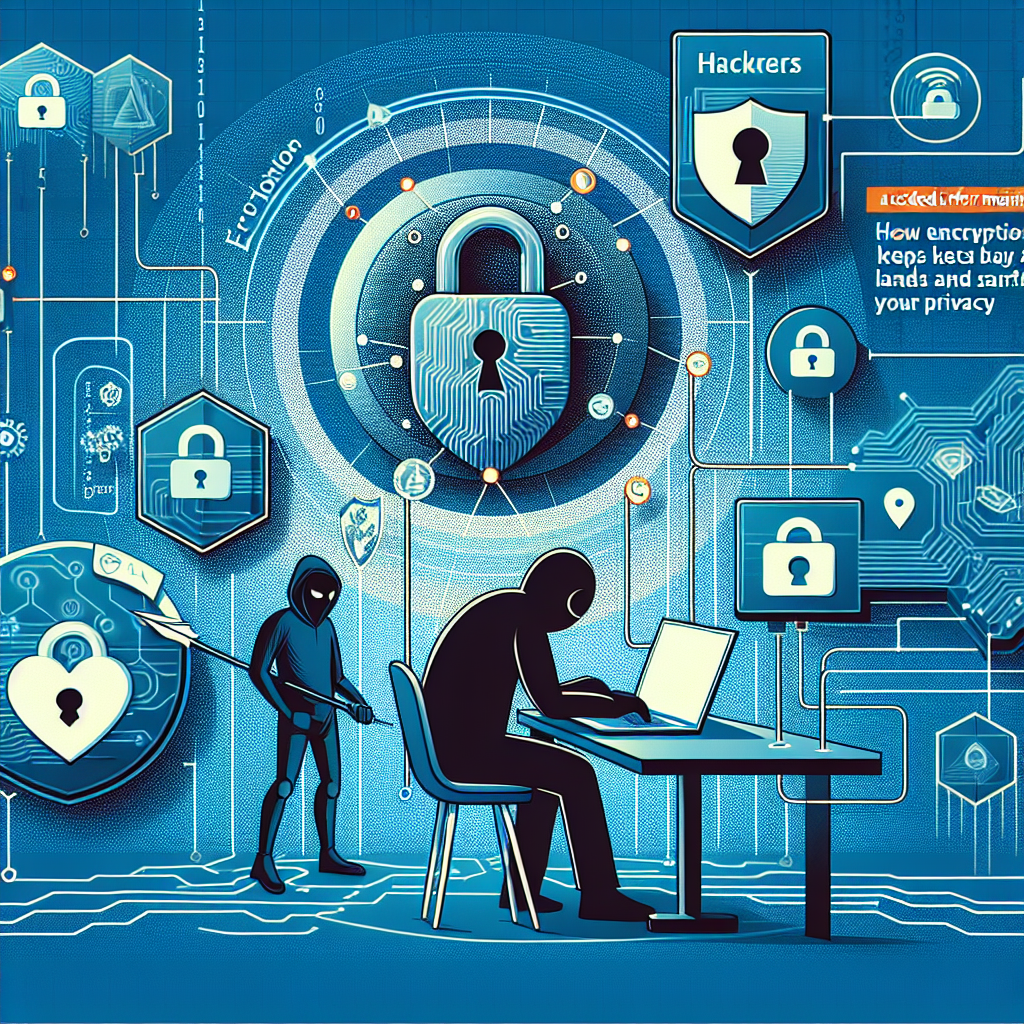[ad_1]
In today’s digital age, where information is constantly being shared and stored online, the threat of cyber attacks and data breaches looms large. Hackers are always on the lookout for vulnerabilities to exploit, making privacy and security essential concerns for individuals and organizations alike. Encryption is a powerful tool that helps keep hackers at bay and safeguards your privacy by protecting your data from unauthorized access. In this article, we will explore how encryption works, its role in enhancing cybersecurity, and why it is crucial for maintaining privacy in the digital realm.
The Basics of Encryption
Encryption is the process of converting data into a coded form that can only be accessed with the right decryption key. This transformation makes the original data unreadable to anyone who does not have the key, ensuring that sensitive information remains secure. Encryption algorithms use complex mathematical formulas to scramble data, making it virtually impossible for hackers to decipher without the correct key.
Types of Encryption
There are two main types of encryption: symmetric and asymmetric. Symmetric encryption uses a single key to both encrypt and decrypt data, while asymmetric encryption employs a pair of keys – one public and one private. The public key is used to encrypt data, while the private key is needed to decrypt it. This dual-key system adds an extra layer of security, as the private key is kept confidential and is not shared with others.
End-to-End Encryption
End-to-end encryption is a type of encryption that ensures that only the sender and the intended recipient can access the data being transmitted. It is commonly used in messaging apps, email services, and other communication platforms to protect sensitive conversations from eavesdroppers and hackers. With end-to-end encryption, even the service provider cannot access the contents of the messages, guaranteeing privacy for users.
The Role of Encryption in Cybersecurity
Encryption plays a critical role in cybersecurity by securing data at rest and in transit. Data at rest refers to information stored on devices or servers, while data in transit pertains to data being transmitted over networks. By encrypting data, organizations can prevent unauthorized access to sensitive information, reducing the risk of data breaches and maintaining the confidentiality of their data.
Protecting Personal Information
With the increasing amount of personal information being shared online, encryption is crucial for safeguarding privacy. By encrypting financial transactions, personal messages, and other sensitive data, individuals can protect themselves from identity theft, fraud, and other malicious activities. Encryption ensures that only authorized parties can access private information, giving individuals peace of mind when navigating the digital world.
Compliance with Regulations
Many industries are subject to regulatory requirements that mandate the use of encryption to protect sensitive data. For example, the healthcare sector must comply with the Health Insurance Portability and Accountability Act (HIPAA), which requires the encryption of patient health information. Failure to encrypt data can result in hefty fines and reputational damage for organizations, highlighting the importance of encryption in meeting legal obligations and industry standards.
FAQs
What is encryption and why is it important?
Encryption is the process of encoding information to make it secure. It is important because it protects sensitive data from unauthorized access, ensuring privacy and confidentiality.
How does encryption keep hackers at bay?
Encryption scrambles data so that only authorized parties with the decryption key can access it. This makes it difficult for hackers to intercept and decipher sensitive information, reducing the risk of data breaches.
Is encryption foolproof?
While encryption is a powerful tool for enhancing cybersecurity, it is not completely foolproof. Advanced hackers may still find ways to bypass encryption through techniques such as brute force attacks or social engineering. However, using strong encryption algorithms and best practices can significantly mitigate these risks.
Conclusion
Encryption is a vital component of cybersecurity that helps keep hackers at bay and safeguards your privacy in a digital world filled with threats. By encrypting data, individuals and organizations can protect sensitive information from unauthorized access, comply with regulations, and mitigate the risk of data breaches. Understanding the basics of encryption and its importance is key to maintaining privacy and security online. Stay informed, stay vigilant, and stay encrypted.
[ad_2]


